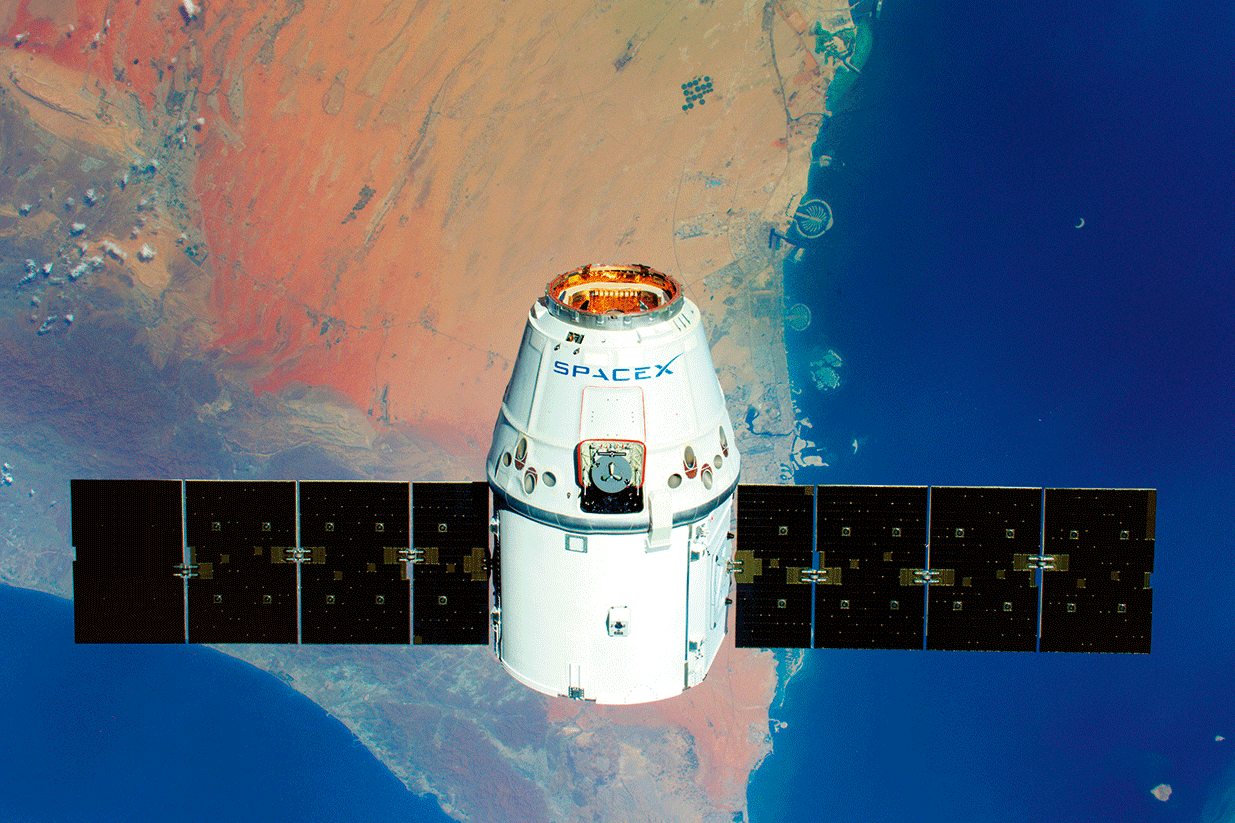
“In the past, Arab scientists observed the stars to learn more about the world around them,” says Samir Halawi, Chief Executive Officer at Thuraya, a leading player in the space sector. “This tradition continues with the pioneering and comprehensive approach of the UAE Space Agency,” he adds.
The UAE’s knowledge-driven approach has seen home-grown companies including Thuraya, Al Yah Sat and the Mohammad Bin Rashid Space Centre (MBRSC), investing more than Dh20 billion in space technologies to learn more about the Earth and the universe. This forms part of a $300 billion (Dh1.1 trillion) global space industry expected to grow at 8 per cent annually.
In addition to furthering the country’s commitment to sustainable economic development, this push into the extraterrestrial serves to support strategic initiatives to advance the technological base locally and inspire innovation while also significantly bolstering national pride. With four satellites already flying the UAE flag — the first, Dubai Sat 1, launched in 2009 — the country is currently developing Khalifa Sat, which will be the first in the country to be constructed by a wholly Emirati team. It is expected to be orbiting Earth by 2018.
“Since our foundation, we at the UAE Space Agency have worked to realise the vision of our national leadership for this sector, which took form in 1973 when Shaikh Zayed Bin Sultan Al Nahyan met with a Nasa delegation,” Dr Khalifa Al Romaithi, Chairman of the UAE Space Agency, said at the organisation’s second anniversary this July.
“The governmental vision, care and support offered to the Space Agency serves as motivation for all those leading our various projects to continue to work towards the established goals,” Dr Al Romaithi added.
The UAE’s focus on space is included in the National Innovation Strategy to secure a high tech-based future in the country. The sector is seen as integral to developing the other six sectors in the strategy — renewable energy, transport, education, health, technology and water. The expansion of these plans also sees the UAE join the race to Mars, which puts it in elite company as one of only nine nations. Hope Probe, the first by an Arab, Islamic country, is expected to reach the Red Planet by 2021, the 50th anniversary of the founding of the UAE.
Hope Probe will study climate on that planet on an ongoing basis. Said to be the first real Martian aerial observatory, more than 1,000 gigabytes of data will be sent to receiving stations around the world and shared freely with the scientific community to enrich human knowledge. More than 75 Emiratis will work on the Emirates Mars Mission team, with the number expected to reach 150 before 2020.
“The creation of the UAE Space Agency embodied the ambitious UAE Vision 2021,” Dr Al Romaithi added. “It came to adopt a deep-rooted and glorious heritage, reviving the history of our pioneering ancestors through the determination of innovative Emiratis and qualified individuals who have led this sector towards excellence.”











